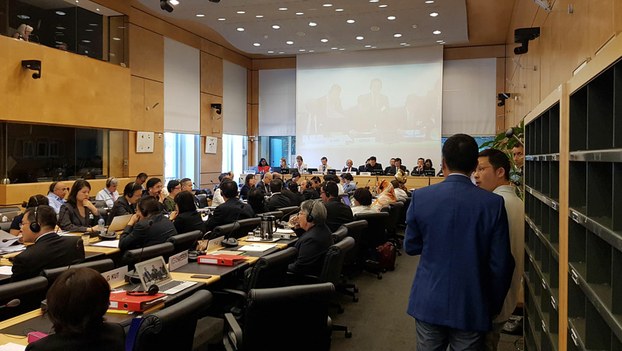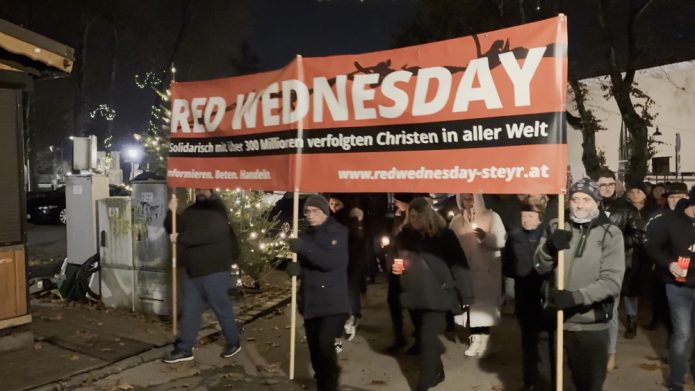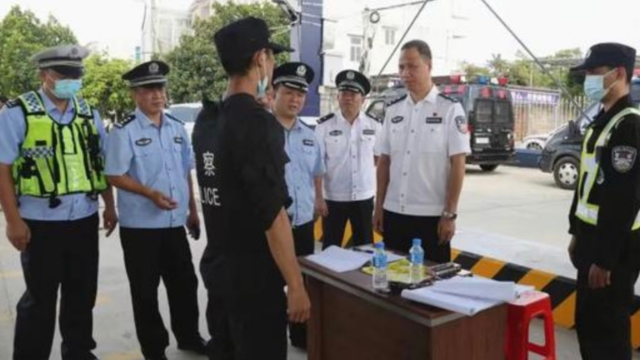The United Nations’ Committee on the Elimination of Racial Discrimination (CERD) expressed concerns over China’s mass internment of ethnic Uyghurs and restrictions on their religious freedom as it convened Friday to examine whether the country complies with its convention.

The CERD’s Geneva-based body of independent experts that monitors implementation of the Convention on the Elimination of All Forms of Racial Discrimination by its member nations kicked off its review of China’s adherence to the charter’s guidelines at its 96thsession, the first time it has done so since its 75thsession in 2009.
CERD vice-chairwoman Gay McDougall said the human rights panel is “deeply concerned” by reports that China “has turned the [Xinjiang] Uyghur Autonomous Region (XUAR) into something that resembles a massive internment camp that is shrouded in secrecy” in the name of eradicating “religious extremism” and “maintaining social stability.”
Beginning in April 2017, Uyghurs accused of harboring “strong religious views” and “politically incorrect” ideas have been jailed or detained in political “re-education camps” throughout the XUAR, where members of the ethnic group have long complained of pervasive discrimination, religious repression, and cultural suppression under Chinese rule.
A recent editorial in the official Global Times dismissed international coverage of the political re-education camps in the XUAR, which it labeled “training institutes,” saying western media outlets were incorrectly labeling them as “detention” sites and “baselessly criticizing China’s human rights.”
Aside from the brief mention in the article, China’s central government authorities have not publicly acknowledged the existence of political re-education camps in the XUAR, and the number of inmates kept in each facility remains a closely guarded secret. But local officials in many parts of the region have in RFA telephone interviews forthrightly described sending significant numbers of Uyghurs to the camps and even described overcrowding in some facilities.
McDougall on Friday cited credible reports which suggest that as many as 1.1 million people are or have been detained in the political re-education camps—which equates to 10-11 percent of the adult Muslim population of the region—while another 2.2 million people are forced to attend “open re-education camps,” which require daily indoctrination sessions but allow attendees to return home in the evening.
Other issues raised included claims from the activist group Chinese Human Rights Defenders, which said last month that 21 percent of all arrests recorded in China in 2017 were in the XUAR.
Another panel member, Fatima-Binta Dah, also questioned Chinese representatives about restrictions on religion in the region, asking “what legal protection exists for [Uyghurs] to practice their religion.”
The Chinese delegation of around 50 officials, led by Yu Jianhua, noted improved living standards in China amid growing economic prosperity in the country, but did not address the comments from McDougall or Dah.
List of concerns
Earlier this week, the Munich-based World Uyghur Congress (WUC) exile group submitted a list of concerns to CERD over the treatment of Uyghurs in China and asked the committee to demand answers from the country’s representatives.
In its submission, the WUC highlighted China’s political re-education camp network, calling on CERD to push the country’s delegation to confirm reports of the number of people detained, explain what due process they have, and to provide information on reports of deaths in the camps and whether medical treatment is provided in the facilities.
Among other concerns, WUC noted that basic legal rights for Uyghurs in China, including the right to legal representation, a fair and prompt trial and due process, “are virtually non-existent,” and that there is no evidence the “countless” members of the ethnic group arrested each year on charges of illegal religious practice, separatism, or extremism are provided with any legal representation at all.
It said that China’s Criminal Procedure Law (CPL) had not been amended to conform to the international Convention Against Torture, noting that police are legally entitled to deny access to lawyers for suspects charged with terrorism and state security offenses, expanding opportunities for the use of torture without legal supervision.
WUC called the definition of “terrorism” in China’s Counter–Terrorism Law “excessively broad,” and said that regional implementation guidelines in the XUAR “make direct connections” between terrorism and religious practice through the use of the term “extremism.”
The group also highlighted serious restrictions over the religious freedom of Uyghurs in the name of “de-extremification,” and a clampdown on the freedoms of expression, association, and movement.
Additionally, WUC noted that Uyghurs are routinely denied access to economic opportunities in the XUAR in favor of ethnic Han Chinese and are targeted with discriminatory educational policies.
Concerns welcomed
Dolkun Isa, the president of the WUC, applauded CERD for raising the violations of Uyghur rights on Friday, particularly the use of the political re-education camp network to detain members of the ethnic group.
“They asked the Chinese delegation on what legal grounds the authorities have detained these many Uyghurs, requested that China provide the committee with relevant information regarding this mass detention, and also asked about the religious freedom of the Uyghur people, their language, and their cultural and economic rights,” he told RFA’s Uyghur Service.
“I’m extremely pleased with the U.N. CERD Committee for raising these important issues with the Chinese delegation. This has given us more faith in the work of the committee … and I am glad to see that the extrajudicial detention of some 1 million Uyghurs has received the attention of the U.N.”
Isa noted that the review session will continue on Monday with China’s response to the committee’s concerns, and that conclusions are expected later.
“I am sure China will attempt to play word games with false statements and untrue claims to avoid U.N. scrutiny,” he said.
“It is my hope that the U.N. CERD Committee members will not be fooled by these maneuvers and instead get to the bottom of these issues with real answers and solutions.”
The review session came a day after U.S. Senator Marco Rubio penned an op-ed in the Wall Street Journal, slamming China’s “campaign against Muslim minorities,” and calling on U.S. President Donald Trump’s administration to level sanctions against XUAR Communist Party Secretary Chen Quango, as well as other government officials and business entities assisting the mass detentions in the region.
“[The U.S. State Department] should work with like-minded governments to increase public pressure against China at the United Nations and other multilateral institutions,” he said.
“American leaders must find the political will to confront this evil.”
Source: Copyright © 1998-2016, RFA. Used with the permission of Radio Free Asia, 2025 M St. NW, Suite 300, Washington DC 20036. https://www.rfa.org.












